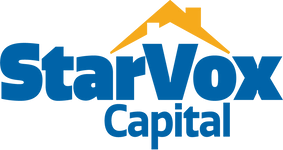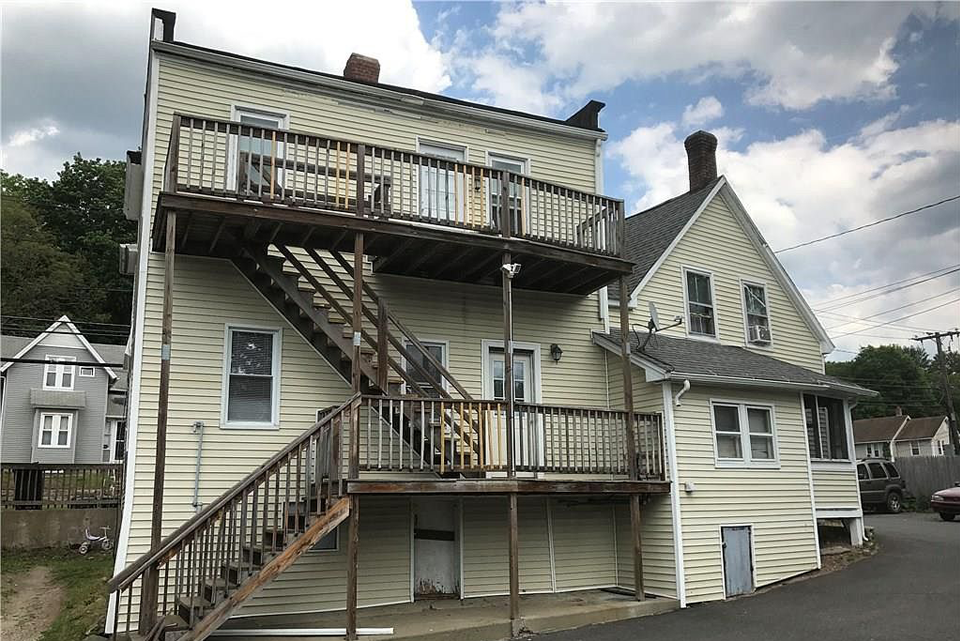Are you looking to invest in commercial properties? Securing financing can be a key challenge for people interested in exploring commercial real estate investment opportunities. In this article, our team at StarVox Capital will explore the world of commercial loans and how to secure financing for investment properties.
Whether you are a seasoned real estate investor or new to the game, understanding the financing options available to you is significant. Commercial loans can provide the capital you need to purchase, renovate, or expand investment properties.
But navigating the lending landscape can certainly be complex, which is why StarVox Capital is here to help. We will delve into the different types of commercial loans you can consider, eligibility requirements, and how to position yourself for success when applying for financing.
By the end of this article, you’ll have gained a clear understanding of the steps to take to secure financing for your investment properties. Get ready to fuel your real estate ambitions with the right financing options. Let’s dive in!
Benefits of investing in commercial properties
Investing in commercial properties offers several benefits that make it an attractive option for savvy real estate investors. Unlike residential properties, commercial properties can generate higher rental income and offer long-term leases, resulting in stable cash flow. Plus, commercial properties often appreciate in value over time, offering the potential for substantial capital appreciation.
Furthermore, commercial properties can diversify your investment portfolio, reducing the risks that can be associated with a single asset class. Investing in different types of commercial properties, such as office buildings, retail spaces, or industrial complexes, allows you to spread your investment across various sectors, thereby maximizing your chances of success.
Another advantage of investing in commercial properties is the opportunity to leverage your investment through financing. By securing a commercial loan, you can amplify your purchasing power and acquire larger, more profitable properties. This leverage can significantly enhance your returns and enable you to grow your real estate portfolio at an even faster pace.
In summary, investing in commercial properties offers higher rental income, potential for capital appreciation, portfolio diversification, and the ability to leverage your investment through financing. With these benefits in mind, let’s explore some of the financing options available for investment properties.
Understanding the financing options for investment properties
When it comes to financing investment properties, you can consider several options. The choice of financing depends on various factors, including the type of property, its purpose (such as purchase, renovation, or expansion), your financial situation, and your long-term goals.
One common financing option for commercial properties is a traditional commercial mortgage loan. These loans are generally offered by banks and other financial institutions and are secured by the property itself. Commercial mortgage loans usually offer longer repayment terms compared to residential mortgages, ranging from 5 to 20 years, with a fixed or variable interest rate.
Another financing option to explore is a Small Business Administration (SBA) loan. The SBA offers several loan programs specifically designed to support small businesses, including those in the real estate sector. The SBA 7(a) loan program, for example, can be used for various purposes, such as purchasing commercial properties, refinancing existing debt, or renovating properties.
In addition to traditional commercial mortgages and SBA loans, you may also want to consider alternative financing options, such as private lenders, crowdfunding platforms, or real estate investment trusts (REITs). Flexibility can be found in these options, and they may be more accessible for investors with unique circumstances or those looking for faster loan approval.
Ultimately, it’s important to thoroughly research and evaluate each financing option to determine which one best suits your investment needs. Consider factors such as interest rates, repayment terms, eligibility requirements, and the overall cost of borrowing. Now that we have a better understanding of the financing options available, let’s look at the requirements for securing a commercial loan.
Requirements for securing a commercial loan
Securing a commercial loan for your investment property requires careful preparation and meeting specific eligibility requirements. Lenders evaluate numerous factors when considering your loan application, including your creditworthiness, financial stability, property value, and your ability to generate rental income.
One of the primary requirements for obtaining a commercial loan is a strong credit score. Lenders typically look for a credit score of at least 680; however, some programs may accept lower scores. A good credit score demonstrates your ability to manage debt responsibly and increases your chances of loan approval.
Aside from a good credit score, lenders also consider your financial stability. This may include evaluating your personal and business financial statements, tax returns, and bank statements. Lenders want to ensure that you have sufficient income and assets to cover the loan payments as well as any unforeseen expenses.
The property itself is another important consideration for lenders. Your lenders will assess the property’s value, location, condition, and potential for generating rental income. A thorough appraisal of the property will be conducted to determine its market value and potential risks.
Furthermore, lenders will review your investment strategy and business plan. They like to see that you have a clear vision for the property and a plan in place to generate rental income. A comprehensive and well-presented business plan can significantly improve your chances of loan approval.
Lastly, lenders may require a down payment for the commercial loan. The down payment is typically higher for commercial loans compared to residential mortgages. Expect to provide at least 20% to 30% of the property’s purchase price as a down payment, while being aware that some lenders may require more than that amount depending on the specific circumstances.
Now that we understand the requirements for securing a commercial loan, let’s discuss some tips to improve your chances of getting approved.

Six tips for improving your chances of getting approved for a commercial loan
When applying for a commercial loan, here are five steps you can take to increase your chances of getting approved:
1. Prepare a Comprehensive Business Plan: A well-structured business plan that clearly communicates and outlines your investment strategy, market analysis, and financial projections demonstrates your commitment and preparedness.
2. Maintain a Good Credit Score: Pay your bills on time, reduce any outstanding debt, and keep your credit utilization low to maintain a healthy credit score.
3. Build Strong Relationships with Lenders: Networking and building relationships with lenders can help you to establish trust and increase your chances of loan approval.
4. Demonstrate Financial Stability: Maintain a stable income and savings, provide accurate financial statements, and document your capability to cover the loan payments.
5. Have a Solid Property Investment Strategy: Outline your property’s potential for rental income, market demand, and long-term profitability. Doing so showcases your understanding of the investment opportunity.
6. Gather All Required Documents: Be prepared to provide all necessary documents, such as tax returns, bank statements, property appraisals, and business financial statements.
By following these six tips and positioning yourself as a reliable borrower, you can greatly improve your chances of securing a commercial loan for your investment property. Now, let’s talk about the types of commercial loans available in the area.
Exploring the different types of commercial loans available
A variety of commercial loan options are available to suit different investment needs. Here are some of the most common types of commercial loans you can consider:
- Traditional Commercial Mortgage Loans: These loans are offered by banks and financial institutions, providing long-term financing for the purchase, renovation, or expansion of commercial properties.
- SBA Loans: As we discussed earlier, the Small Business Administration offers several loan programs, including 7(a) loans, 504 loans, and microloans, to support small businesses and real estate investors alike.
- Bridge Loans: Bridge loans provide short-term financing as a way to bridge the gap between the purchase of a new property and the sale of an existing property. These loans can be useful for investors looking to quickly acquire new properties.
- Hard Money Loans: Hard money loans are typically provided by private lenders and are based on the value of the property rather than the borrower’s perceived creditworthiness. They are a viable option for investors with low credit scores or unique circumstances.
- Construction Loans: If you plan to develop or renovate a commercial property, a construction loan can provide you with the necessary funds during the construction phase. Once the project is complete, the loan can be converted into a traditional mortgage.
Each type of commercial loan comes with its own set of eligibility requirements, interest rates, and repayment terms. Researching and comparing these options will help you find the best fit for your current and future investment goals. Now, let’s cover how to find the right lender for your investment property financing needs.
Finding the right lender for your investment property financing needs
Choosing the right lender is of the utmost importance when seeking financing for your investment property. Here are a few things to keep in mind:
- Research and Compare Lenders: Set some time aside to research and compare different lenders. Look for lenders with specific experience in commercial real estate financing and a track record of working with investors.
- Read Reviews and Testimonials: Read reviews and testimonials from other investors who have worked with the lender you are considering. This can give you valuable insights into their reputation and customer satisfaction.
- Consider Interest Rates and Fees: Compare the interest rates, loan origination fees, and any other fees associated with the loan. Make sure you understand the total cost of borrowing and how it aligns with your investment plans.
- Evaluate Customer Service: Pay attention to the lender’s customer service and responsiveness. Prompt communication and a willingness to address your concerns are important factors to look for in a lender.
- Ask for recommendations: Seek recommendations from other real estate investors or industry professionals. They may have insights into lenders who specialize in investment property financing.
By carefully evaluating lenders and considering these factors, you can find a lender who understands your investment goals and provides the financing solution you need. However, securing financing for your next investment property requires more than just finding the right lender. Let’s explore the importance of a solid business plan and financial projections.
The importance of a solid business plan and financial projections
When applying for a commercial loan, a solid business plan and accurate financial projections are essential. These documents will provide lenders with a clear understanding of your investment strategy, market analysis, and the potential profitability of your investment property.
A well-crafted business plan should include:
- Executive Summary: A concise overview of your investment strategy and the property’s potential
- Market Analysis: An in-depth analysis of the local real estate market, including supply and demand, rental rates, and competition.
- Investment Strategy: A detailed explanation of your investment goals, property selection criteria, and exit strategy
- Financial projections: projections of rental income, operating expenses, cash flow, and return on investment over a specified period.
- Risk Assessment: An evaluation of any potential risks and accompanying mitigation strategies
A solid business plan helps to demonstrate your expertise, commitment, and the viability of your investment. It gives lenders confidence in your ability to generate rental income and repay the loan.
Accurate financial projections are equally important. Make sure they are based on realistic assumptions and consider components like rental rates, vacancy rates, operating expenses, and potential market fluctuations. Lenders want to see that you have thoroughly analyzed the financial aspects of your investment and have a clear plan for generating positive cash flow.
By investing time and effort into creating a comprehensive business plan and accurate financial projections, you will increase your chances of loan approval and showcase your professionalism as an investor. However, there are some common mistakes to avoid when applying for commercial loans. Let’s explore these to ensure you’re well prepared.
Six common mistakes to avoid when applying for commercial loans
Applying for a commercial loan can be a complex process, and making mistakes along the way can certainly hinder your chances of approval. Here are six of the most common mistakes to avoid:
- Insufficient preparation: Failing to prepare a comprehensive business plan, gather all required documents, or thoroughly research lenders can result in a weak loan application.
- Inaccurate Financial Projections: Providing unrealistic or inaccurate financial projections will likely raise red flags for lenders and undermine your credibility.
- Neglecting Credit Score Improvement: A poor credit score can notably impact your loan approval chances. Take steps to improve your credit score before applying for a commercial loan.
- Lack of Property Evaluation: Failing to thoroughly evaluate the investment property’s value, condition, and potential income can lead to unrealistic loan requests and potential loan denials.
- Inadequate Cash Reserves: Lenders prefer to see that you have sufficient cash reserves to cover any unexpected expenses or periods of vacancy. Failing to demonstrate this can raise concerns about your ability to repay the loan.
- Overlooking Loan Terms and Conditions: Carefully review all loan terms and conditions before signing any agreements. Always understand the interest rate, repayment terms, and any potential fees or penalties.
By avoiding these six common mistakes, you can present a strong loan application and increase your chances of securing financing for your investment property. In conclusion, let’s summarize the key takeaways from this article.

Securing financing for investment properties
Securing financing for investment properties can be a challenging process, but with the right knowledge and preparation, it becomes more manageable. In this article, we discussed the benefits of investing in commercial properties, the various financing options available, and the requirements for securing a commercial loan.
We presented tips for improving your chances of loan approval, explored different types of commercial loans, and highlighted the importance of finding the right lender. Additionally, we emphasized the significance of a solid business plan and accurate financial projections, as well as six of the most common mistakes to avoid when applying for commercial loans.
By following the steps outlined in this article, you can position yourself for success and secure the financing you need to fuel your real estate ambitions. With the right financing in place, you can continue on your journey as a successful commercial property investor, leveraging the potential for high rental income, capital appreciation, and portfolio diversification.
Reach out to StarVox Capital to start exploring your financing options today and turn your investment dreams into a reality. Schedule a strategy call or call us at (203) 318-9900. Based in West Hartford, CT, and serving clients nationwide, StarVox Capital is here to get you the money you need to create wealth with real estate. StarVox Capital is committed to guiding you, whether you’re investing in your first property or decades into the real estate investing journey.





